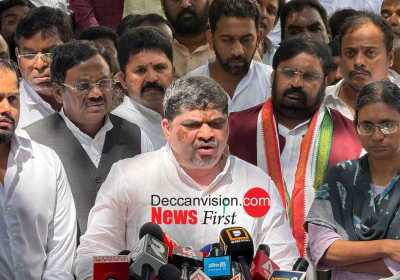India’s Duty-Free Masterstroke: Boosting EVs and Mobile Manufacturing for Global Dominance

By S.S. Reddy | Hyderabad
In a bold move to strengthen its position as a global manufacturing hub, the Indian government has scrapped import duties on 35 critical components for electric vehicle (EV) battery production and 28 key items for mobile phone manufacturing. This strategic policy shift is expected to reduce production costs, attract foreign investments, and enhance India’s competitiveness in global supply chains. As major economies like the U.S. impose new trade barriers, India’s decision ensures that its domestic industries remain resilient and future-ready.
Strengthening the EV Revolution
Battery costs constitute nearly half the price of an electric vehicle, making affordability a key barrier to widespread adoption. By eliminating duties on essential materials like lithium, cobalt, and nickel, India aims to drive down EV prices, making them accessible to a broader consumer base. This move aligns with the country’s goal of achieving 30% EV penetration by 2030 while reducing reliance on fossil fuels. Additionally, with multinational corporations looking for alternatives to China’s supply chains, India stands to gain significantly in the EV sector.
Elevating Mobile Manufacturing to the Next Level
India has already emerged as the world’s second-largest mobile phone manufacturer, with companies like Apple, Samsung, and Xiaomi ramping up production. The removal of duties on 28 key components is set to further cut manufacturing costs, encouraging more global brands to establish production bases in the country. With mobile phone exports expected to surpass $100 billion in the coming years, this policy strengthens India’s ambition of becoming a dominant player in the global electronics market.
Navigating Global Trade Challenges
With the U.S. preparing to impose new tariffs on Indian exports starting April 2025, India is strategically adjusting its trade policies to maintain its competitiveness. The duty waivers not only shield domestic manufacturers from rising input costs but also strengthen India’s negotiation stance in international trade agreements. Talks are underway to recalibrate duties on U.S. imports worth $23 billion, ensuring a balanced trade approach.
Challenges and the Road Ahead
Despite the benefits, India faces hurdles in reducing its dependency on China for key raw materials. To sustain long-term growth, the government must invest in domestic mining, recycling technologies, and research & development for EV batteries and semiconductor components. Additionally, a stable policy framework and infrastructure development, including gigafactories and supply chain enhancements, will be crucial for maximizing the potential of this decision.
By eliminating import duties on critical manufacturing components, India has taken a decisive step toward industrial self-reliance and global leadership. The success of this policy will depend on how effectively it is backed by investments, innovation, and infrastructure development in the coming years.








